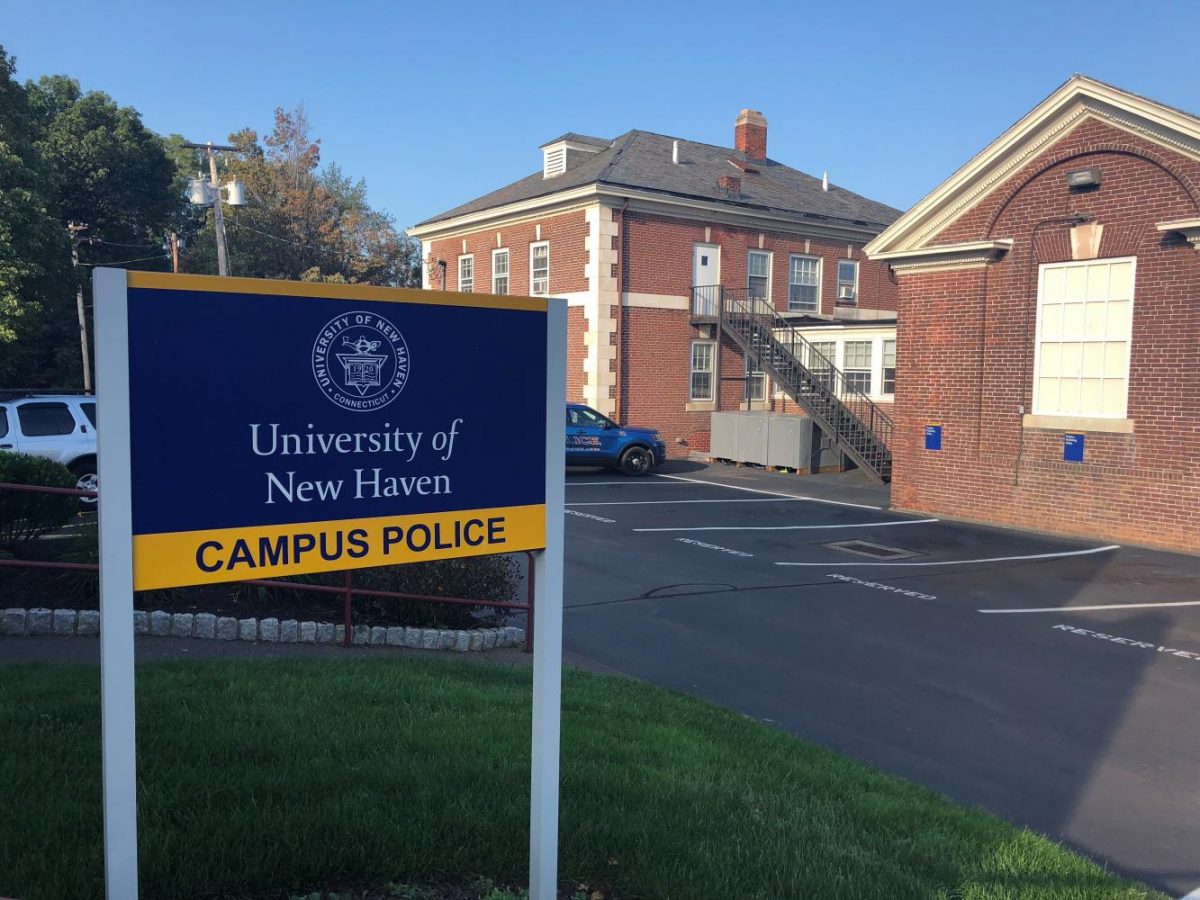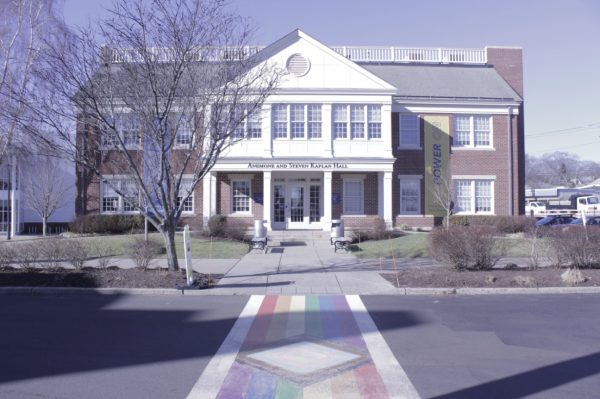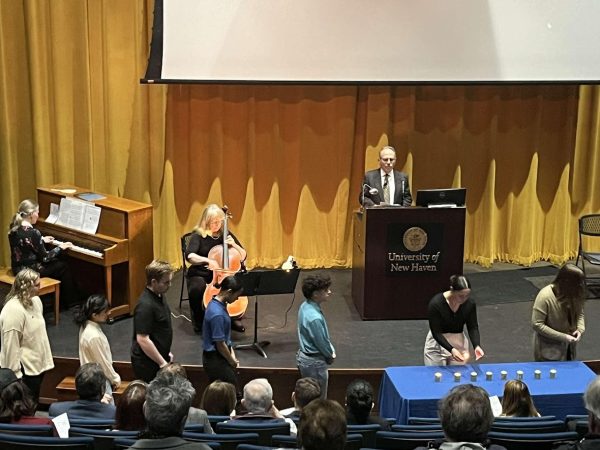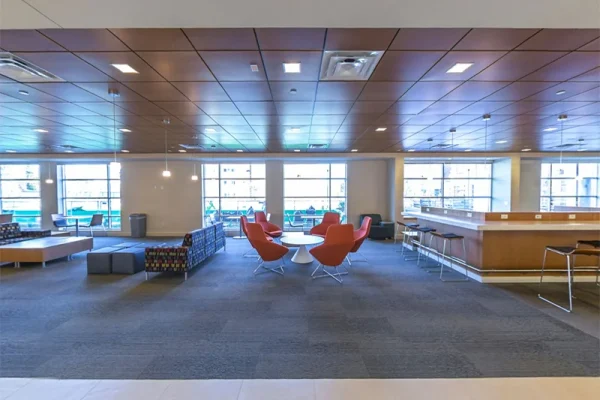Failure of Student-Compliance to COVID-19 Policies Causes Positive Cases to Skyrocket
The University of New Haven learned how quickly the tables can turn after their COVID-19 cases jumped from five to 93 in seven days, which caught the attention of local news.
On Oct. 4, the university’s COVID-19 dashboard reported five new COVID cases, which brought the number of cases to seven since the school opened. Within 24 hours, these numbers quickly rose. Members of Charger Nation held their breath as today’s numbers, as of Oct. 12, report 113 cases.
According to an Oct. 6 email from the COVID-19 task force, the dramatic rise in cases is a result of an “unauthorized large-scale gathering” that did not follow state social-distancing guidelines. Allegedly, at this gathering, a COVID positive student exposed others, many of whom are students living in Winchester Hall. That led to the quarantine of the entire building and all of its residents.
The rise in cases comes after an Undergraduate Student Government Association (USGA) meeting on Sept. 18, where Summer McGee — head of the university’s COVID-19 Task Force — commended students for upholding health and safety guidelines and keeping their peers accountable.
“The campus community has also been doing a remarkable job of holding each other accountable,” said McGee at the Sept. 18 meeting, “. . . I think relative to even our peers in Connecticut, I think we are doing a remarkable job.”
The university was among the few Connecticut colleges successfully keeping their case numbers low. According to the Connecticut Post’s College COVID Tracker, as of Sept. 29, other colleges in New Haven county were reporting much higher numbers. For example, Yale University counted 25 cases. In contrast, according to Yale’s internal dashboard, as of Oct. 11, the number of positive cases rose to 34.
“As we have seen recently, the selfish actions of only a few individuals can have a far-reaching impact on the entire University community,” Ophelie Rowe-Allen, dean of students, wrote in an email to students on Oct. 10. “ . . . Please do not put yourself in a position where your decisions could undermine the hard work everyone has put in throughout the first half of the semester.”
Rowe-Allen reminded students that any violations of COVID-19 guidelines — including breaking guest policies or state social distancing guidelines — will be investigated and could face strict consequences. Those who break quarantine will face immediate suspension from university housing. There have already been nearly 300 violations heard by the dean of students’ office, and more than 150 students have been disciplined, according to Rowe-Allen.
“This is a time for us to come together as a community, to be accountable to each other, and to support one another,” Rowe-Allen wrote in her email to students. “Your continued commitment is critical to ensuring the semester can continue with no further interruptions.”
University President Steven H. Kaplan announced in an Oct. 12 email to the university community that in-person classes from Tuesday, Oct. 13 to Saturday, Oct. 17 will move online in order to mitigate the cases.
“I want to encourage everyone to be calm, to be smart, and not to panic,” wrote Kaplan.
In response to the health stressors students are facing, Kaplan also implemented a “re-charge day” on Wednesday, Oct. 14. This was a suggestion from USGA, where all classes will be canceled and students can take the time to rejuvenate.
Currently, at an orange (moderate risk) COVID-19 alert level, the university is experiencing new cases on campus that are increasing and may continue to do so for the next few days. According to the Oct 12 follow-up email from the COVID-19 task force, other stipulations of this alert level include campus dining restricted to “grab and go” options, targeted quarantine for campus locations with clusters of infection, commuters restricted from campus, prohibited gatherings of any size, and strongly discouraged off-campus travel for residential students.
The administration of Sacred Heart University — facing a similar large-scale outbreak — threatened to send students home from their Fairfield campus if students continued to disregard the policies in place. U New Haven lists students removal from campus as a measure for the red “higher risk” alert level, which is above orange.
What will cause a shift to red classification is unknown. At the Sept. 18 USGA meeting McGee said “there is no magic number” of COVID positive cases that will result in the campus’s closure. She said that this is up to the local health department and advice from the state of Connecticut.
The CT State Data Center dashboard marks New Haven county at 14,830 positive cases of COVID-19 as of Oct. 8; the highest in the state second to Fairfield county, with 20,701.
Rowe-Allen wrote that the university police department and West Haven police department will be “actively monitoring campus and the area surrounding campus.”
She also instructed students to continue to report COVID-19 related misconduct via Report It, the LiveSafe app, or by calling the University Police Department’s non-emergency number at 203-932-7014.
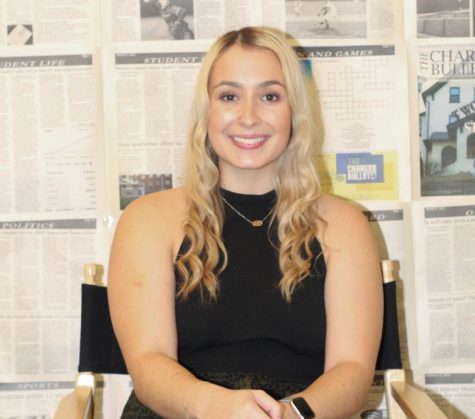
Kelly Adkins is a senior communication major with a concentration in journalism. Kelly has been a contributing writer for the Charger Bulletin since 2019...

